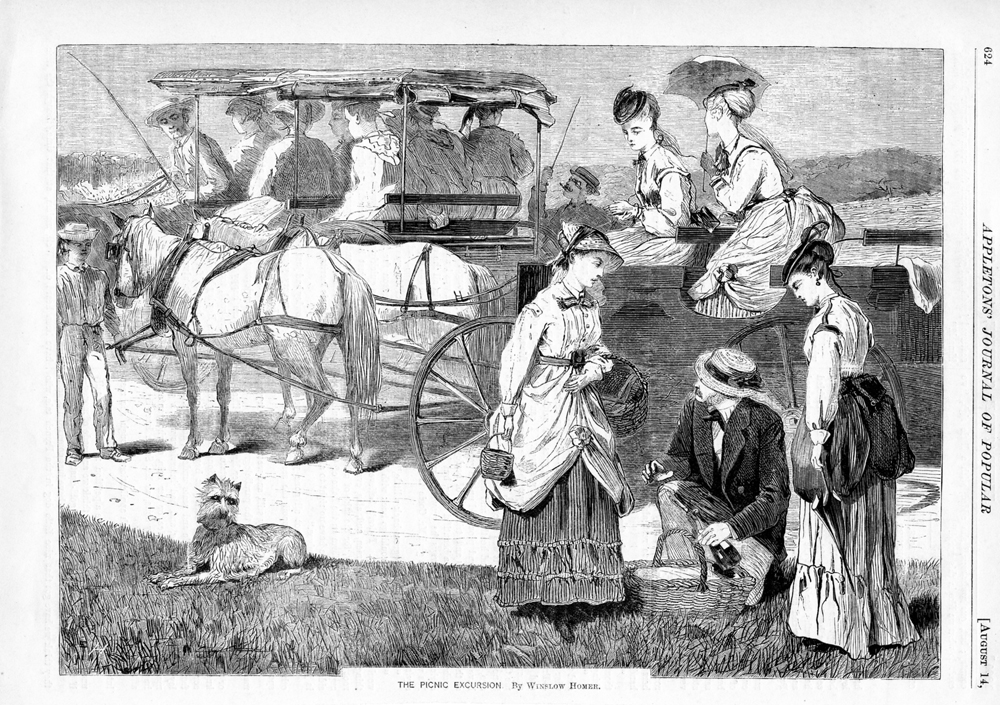 When Appleton’s Journal commissioned Winslow Homer to illustrate a short essay, “Picnic Excursions,” it’s unclear if he ever read the text, partly because he titled his composition The Picnic Excursion. Perhaps he considered that picnics are...
When Appleton’s Journal commissioned Winslow Homer to illustrate a short essay, “Picnic Excursions,” it’s unclear if he ever read the text, partly because he titled his composition The Picnic Excursion. Perhaps he considered that picnics are...
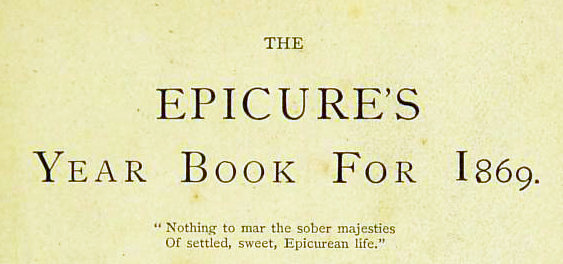 According to Jerrold’s satire “Picnic Reform,” British “Picnic- frequenters” must radically alter their “picnic gastronomy.” Change is accomplished by eliminating the ordinary. “Could anything be more barbarous?”...
According to Jerrold’s satire “Picnic Reform,” British “Picnic- frequenters” must radically alter their “picnic gastronomy.” Change is accomplished by eliminating the ordinary. “Could anything be more barbarous?”...
 James Jacques Joseph Tissot’s La Partie carrée, aka The Foursome, is more sexually suggestive than the English title indicates. The French title Partie Carrée suggests a sexual tryst and alludes to Édouard Manet’s The Luncheon on the Grass (1863)....
James Jacques Joseph Tissot’s La Partie carrée, aka The Foursome, is more sexually suggestive than the English title indicates. The French title Partie Carrée suggests a sexual tryst and alludes to Édouard Manet’s The Luncheon on the Grass (1863)....
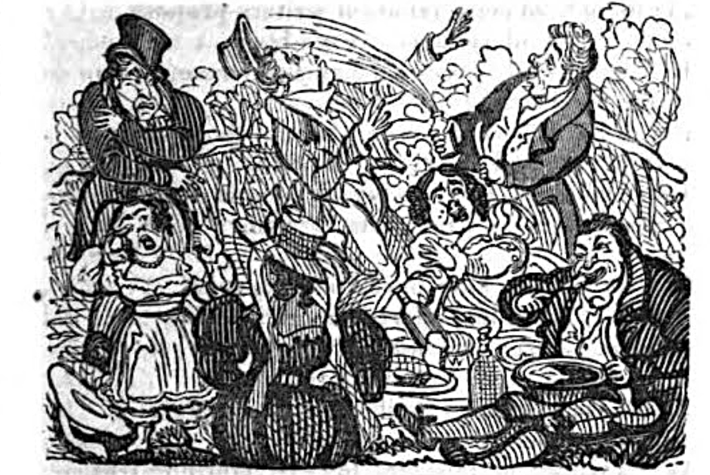 Corny picnic satire was long in vogue in English music before Gilbert and Sullivan’s Thespis, or The Gods Grown Old, premiered in 1871. [Posted elsewhere on PicnicWit.Com] “The Pic-Nic,” an 1829 song (sung to the air of “Here’s the Maiden...
Corny picnic satire was long in vogue in English music before Gilbert and Sullivan’s Thespis, or The Gods Grown Old, premiered in 1871. [Posted elsewhere on PicnicWit.Com] “The Pic-Nic,” an 1829 song (sung to the air of “Here’s the Maiden...
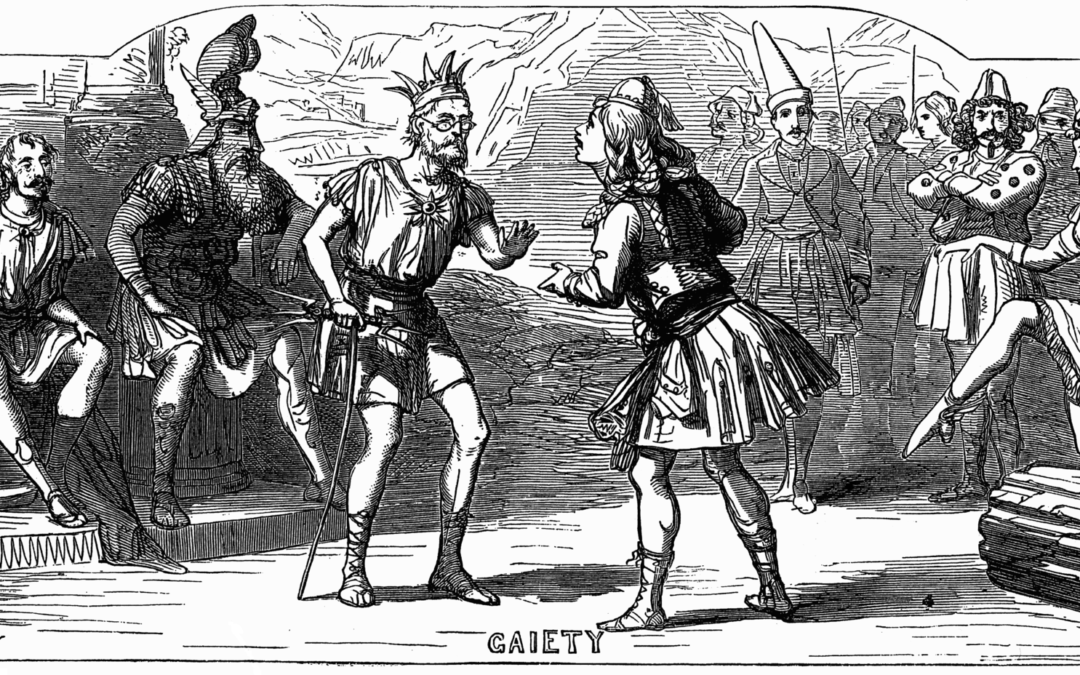 Gilbert and Sullivan’s Thespis or the Gods Grown Old is an early collaboration and not one of their best. It’s a topsy-turvy derivative version of Jacques Offenbach’s operetta Orpheus in the Underworld or Orphée aux envers. Instead of comedy in the...
Gilbert and Sullivan’s Thespis or the Gods Grown Old is an early collaboration and not one of their best. It’s a topsy-turvy derivative version of Jacques Offenbach’s operetta Orpheus in the Underworld or Orphée aux envers. Instead of comedy in the...
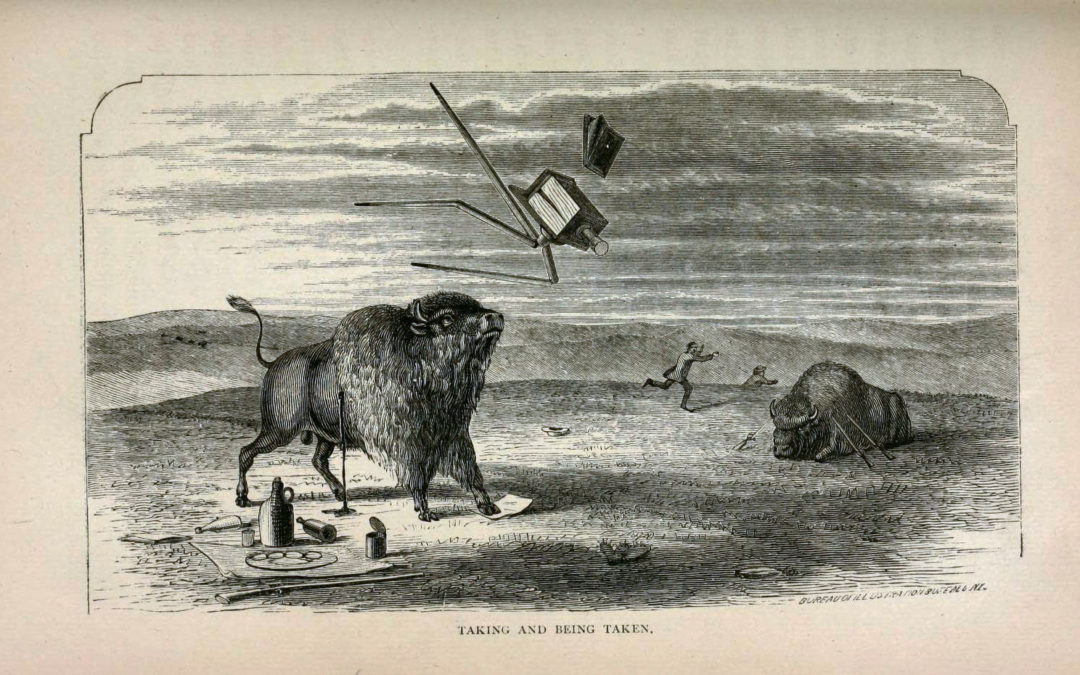 Worrall’s “Taking and Being Taken” depicts a buffalo unsetting a photographer’s picnic. It’s a topsy-turvy moment in which the Buffalo, then being exterminated on the American Great Plains, gets even (momentarily) by disrupting a hapless...
Worrall’s “Taking and Being Taken” depicts a buffalo unsetting a photographer’s picnic. It’s a topsy-turvy moment in which the Buffalo, then being exterminated on the American Great Plains, gets even (momentarily) by disrupting a hapless...
 For London: A Pilgrimage, Doré and Jerrold visited Epsom in 1869 to experience the tumult of Derby-Day— the race, the carnival atmosphere, and picnic luncheons on carriage tops. Unlike William Powell Frith’s The Derby Day, Dore and Jerrold were keen to exploit...
For London: A Pilgrimage, Doré and Jerrold visited Epsom in 1869 to experience the tumult of Derby-Day— the race, the carnival atmosphere, and picnic luncheons on carriage tops. Unlike William Powell Frith’s The Derby Day, Dore and Jerrold were keen to exploit...
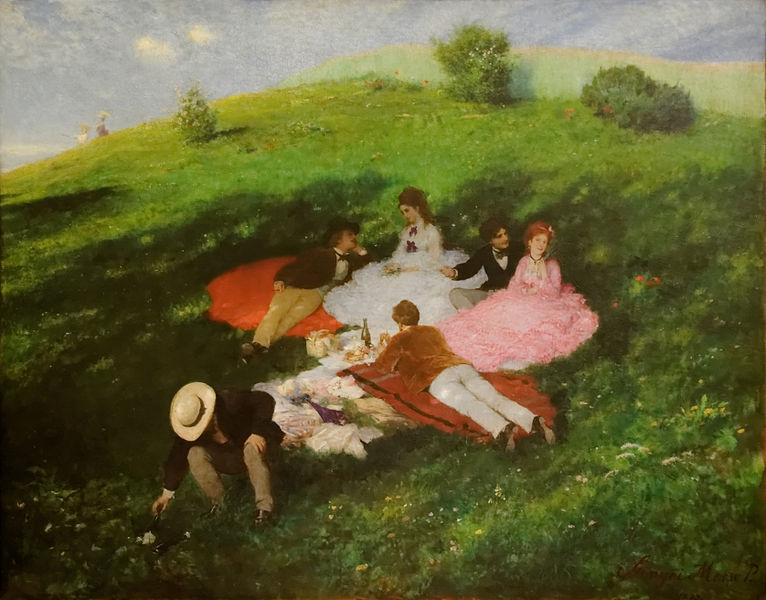 Majális is Merse’s staid Hungarian middle-class-style homage to Manet’s Dejeuner sur L’herbe. Though this is obviously a picnic, the title means “Mayfair.” Merse does not use the Hungarian loanword piknik or the expression jó s Majális zórakozás, a pleasant amusement...
Majális is Merse’s staid Hungarian middle-class-style homage to Manet’s Dejeuner sur L’herbe. Though this is obviously a picnic, the title means “Mayfair.” Merse does not use the Hungarian loanword piknik or the expression jó s Majális zórakozás, a pleasant amusement...
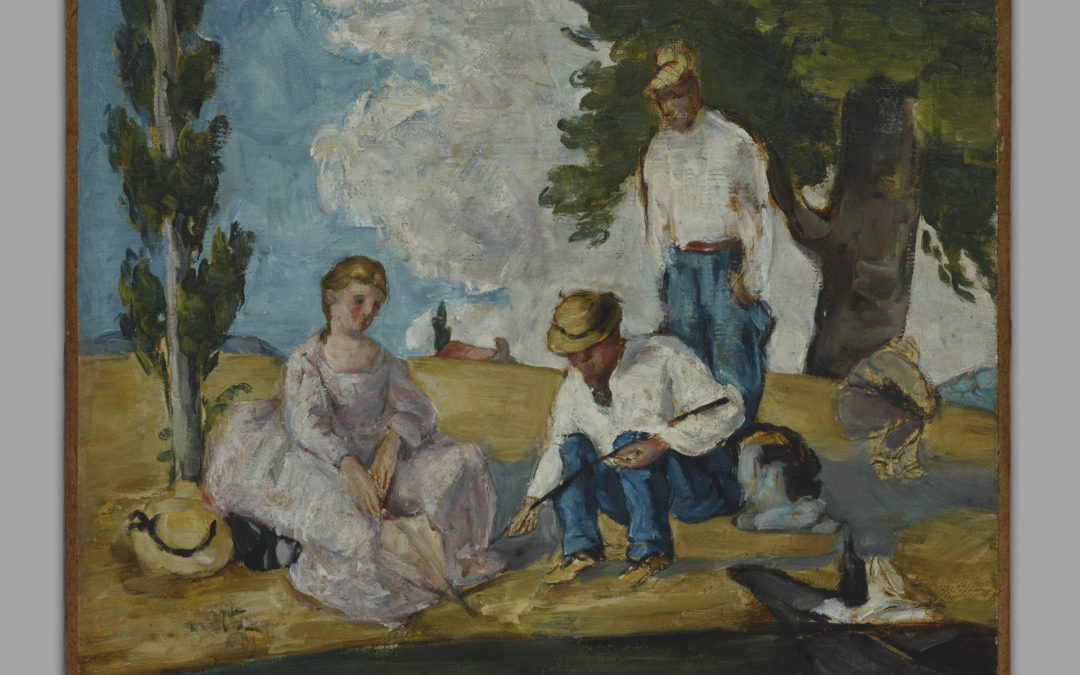 Cezanne’s Picnic on a Riverbank (1873-1874) is a partie de campagne that may be a vague allusion to Manet’s Luncheon on the Grass (1863) A trio of two men and a woman congregate on the riverbank. The woman sits alone, hat off, her parasol between her legs....
Cezanne’s Picnic on a Riverbank (1873-1874) is a partie de campagne that may be a vague allusion to Manet’s Luncheon on the Grass (1863) A trio of two men and a woman congregate on the riverbank. The woman sits alone, hat off, her parasol between her legs....
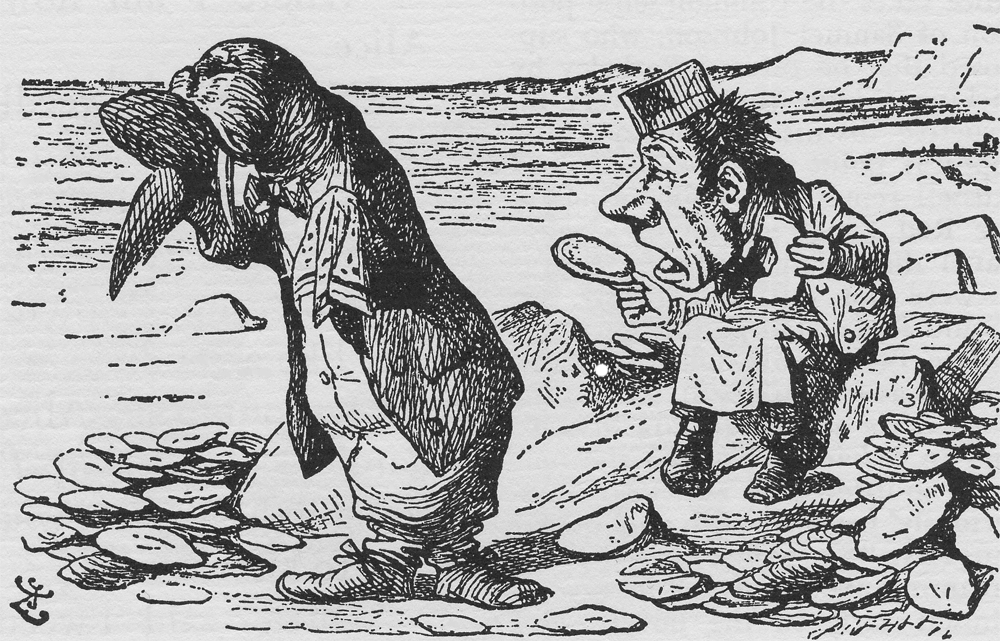 Carroll upends beach picnic expectations in Through the Looking-Glass and What Alice Found There (1871). Still, its tenor is darkly mocking, qualities evident in Tweedledee’s poem “The Walrus and the Carpenter” Of course, everyone laughs at the silly...
Carroll upends beach picnic expectations in Through the Looking-Glass and What Alice Found There (1871). Still, its tenor is darkly mocking, qualities evident in Tweedledee’s poem “The Walrus and the Carpenter” Of course, everyone laughs at the silly...











